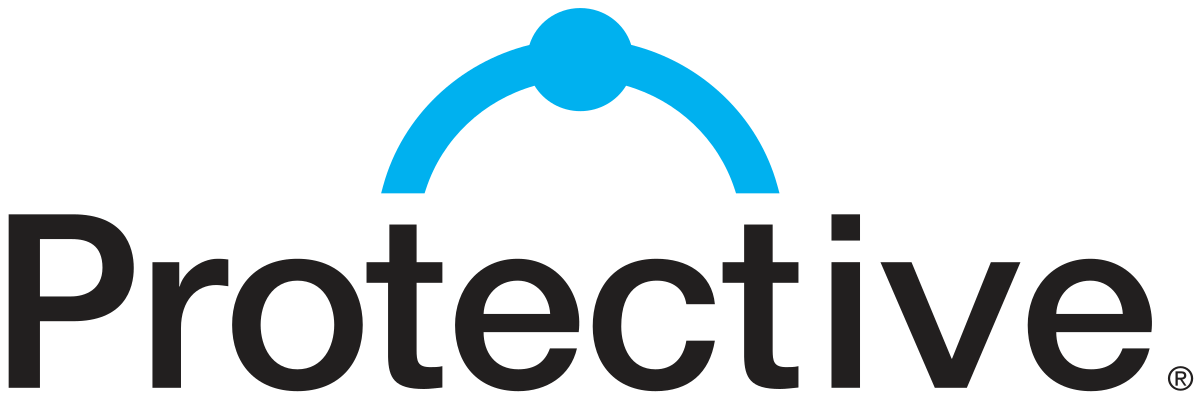Key takeaways
AARP is our top pick for life insurance with no medical exam for seniors over 60.
Ladder earns high marks for flexible term lengths, while Protective offers no-exam whole life options.
Consider Lemonade for long-lasting, affordable life insurance without a medical exam.
Reviewed monthly. Last updated: February 2026.
Not all life insurance policies require a medical exam. No-exam policies can be issued quickly — sometimes within minutes — and are best suited for younger, healthier applicants who want to lock in coverage fast.
NerdWallet’s top no-exam life insurance policies are open to a wide range of ages and offer significant amounts of coverage. The companies listed below are also highly rated in terms of financial strength and customer reputation.
Best life insurance with no medical exam in February 2026
Insurer | NerdWallet rating | Issue age | Coverage available | |
|---|---|---|---|---|
Best for seniors | 50 to 74. | $10,000 - $150,000 (up to $100,000 for NY residents). | ||
Best flexible term life | 20 to 60. | Up to 3 million. | ||
Best for longer terms | 20 to 75. | Starting at $100,000. | ||
Best whole life | 15 days to age 65. | $20,000 - $100,000. | ||
NerdWallet rates insurers at the company level, not the policy level. This means our star rating reflects the company as a whole, and not its no-exam policy specifically. | ||||
Best for seniors: AARP
Why this insurer made the list: No medical exams are required for life insurance policies through AARP, although you have to be a member to buy one.
Rating Breakdown
Financial strength rating
Exceptional
Online purchase
No
NAIC complaints
Fewer than expected
Policies offered
Term, permanent & no-exam

About AARP no-exam life insurance
AARP’s term life insurance policies are available to the organization’s members over 50 and their spouses aged 45 and up. It’s offered in partnership with New York Life, and most people who apply are accepted.
While your policy’s death benefit won’t change, your rates will increase every five years.
Policy name: Level Benefit Term Life Insurance.
⏳Term lengths: Until the age of 80.
Coverage amount: $10,000 to $150,000 (up to $100,000 for New York residents). Higher amounts may be available by phone.
Age eligibility: 50 to 74 for AARP members (45 to 74 for partners and spouses).
Riders:
Term rider.
Living benefits.
Waiver of premium for nursing home stays.
Online experience: AARP’s site shares some policy details and supports online quotes. Some information, such as riders or policy add-ons, are buried in the frequently asked questions section and can be hard to find. The AARP/NYL program has an online portal where you can make payments and manage your policy, but there’s no dedicated mobile app for life insurance.
What to know about applying for a policy: AARP says its term life policies don’t require an exam, but you will be asked some health questions. To buy these policies through New York Life, you must be an AARP member or the spouse of one and meet certain age requirements.
Where this insurer stands out: Unlike other term life policies that end after a certain number of years, AARP’s term life coverage lasts until age 80. It’s also worth noting that New York Life, the carrier that issues AARP policies, is one of NerdWallet’s best term life insurance companies.
» Read the full review: AARP life insurance
Best flexible term life insurance: Ladder
Male
$33 /month
Female
$29 /month
Why this insurer made the list: Ladder issues instant term life insurance policies nationwide, with coverage amounts you can adjust any time.
Rating Breakdown
Financial strength rating
Exceptional
Online purchase
Yes
NAIC complaints
Fewer than expected
Policies offered
Term & no-exam

About Ladder no-exam life insurance
Ladder offers a quick online application for its term life insurance policies, which are available for 10- to 30-year periods. You can increase or decrease coverage while the policy is active, but there aren’t any riders available to customize your policy.
Policy name: Term Life Insurance.
⏳Term lengths: 10, 15, 20, 25 and 30 years.
Coverage amount: $100,000 to $3 million.
Age eligibility: 20 to 60.
Riders: N/A.
Online experience: Information on Ladder’s website is easy to find and its help center is very user-friendly. However, unlike most online-only insurers, Ladder doesn’t have a mobile app so you’ll have to manage your policy through the site’s portal.
What to know about applying for a policy: Be prepared to answer a few health questions in Ladder’s digital application. You won’t be asked to take a medical exam for any of Ladder’s standard term life policies, though.
Where this insurer stands out: A unique feature of Ladder’s policies is the ability to adjust coverage levels up and down, referred to as “laddering.” For example, you might want to increase your death benefit if you have a second child, or reduce it once you’ve paid off your mortgage. When you reduce your policy’s death benefit, Ladder will adjust your premiums accordingly.
» Read the full review: Ladder life insurance
Best for long terms: Lemonade
Male
$28 /month
Female
$24 /month
Why this insurer made the list: Lemonade sells term life insurance online, with coverage periods up to 40 years.
Rating Breakdown
Financial strength rating
Exceptional
Online purchase
Yes
NAIC complaints
Fewer than expected
Policies offered
Term & no-exam

About Lemonade no-exam life insurance
Lemonade approves some applications within minutes, while others may wait a few days or weeks. You’ll apply online and then work with Lemonade’s partner — Legal & General, otherwise known as Banner Life — to finalize your coverage.
Policy name: Term Life Insurance.
⏳Term lengths: 10, 15, 20, 25, 30, 35 or 40 years.
Coverage amount: $100,000 to unlimited amounts for qualifying applicants.
Age eligibility: 20 to 75.
Riders: N/A.
Online experience: Lemonade’s site takes a simple approach, emphasizing transparency. You’ll find coverage amounts, eligibility ages, term lengths and more laid out clearly on the main page or in the FAQ section. Once you’re a policyholder, you can manage your policy on Lemonade's mobile app.
What to know about applying for a policy: Lemonade’s streamlined application asks a few questions about your health and some other potential risk factors. If you’re approved, your policy could be issued within minutes, but some people may require additional review or a medical exam. Note that Lemonade’s policies are not available in New York.
Where this insurer stands out: The company offers coverage lasting up to 40 years, which is significantly longer than the average term life policy. This may be a good fit for people who need coverage for longer but can’t afford or don’t want to commit to the hands-on approach needed for permanent life insurance.
» Read the full review: Lemonade life insurance
Best no-exam whole life: Protective Life
Male
$31 /month
Female
$26 /month
Why this insurer made the list: Protective Life offers no-exam whole life insurance with coverage up to $100,000.
Rating Breakdown
Financial strength rating
Exceptional
Online purchase
No
NAIC complaints
Fewer than expected
Policies offered
Term & permanent

About Protective no-exam life insurance
If you want lifelong coverage without a medical exam, Protective’s whole life policy may be a good fit. The application consists of a few medical questions over the phone, with potential for approval within 10 minutes.
Policy name: Simplified Issue Whole Life Insurance.
Coverage amount: $20,000 to $100,000.
Age eligibility: 15 days to age 65.
Riders:
Waiver of premium
Accidental death
Children's life insurance
Accelerated death benefit
Guaranteed insurability
Online experience: Protective’s website has plenty of educational content, but its policy details can be hard to find. Once you become a policyholder, note that Protective doesn’t have a mobile app but you can manage your policy through the site’s portal.
What to know about applying for a policy: For Protective’s simplified issue whole life, you’ll have to schedule a phone call to complete your application. You’ll be asked a few health questions, but won’t need to take a medical exam.
Where this insurer stands out: Some no-exam policies are bare bones but with Protective, you can choose from a variety of life insurance riders offering extra coverage. This includes “guaranteed insurability” that lets you buy more insurance in the future without going through the underwriting process again.
» Read the full review: Protective Life insurance
How we rate the best life insurance companies
✅ 445 life insurers reviewed
📝 210 policies assessed
🔢 1,515 data points analyzed
📊 Star rating categories
When NerdWallet evaluates life insurance companies, our editorial team considers the insurer's strengths and weaknesses, as well as the things that matter most to customers buying a long-term financial product. We then weigh these factors carefully:
💰 Financial strength (35%). We use AM Best ratings to confirm an insurer’s financial stability and ability to pay claims far into the future. The top life insurance companies have an exceptional financial strength rating of A+ or A++ (Superior).
🗣️ Consumer complaints (35%). Our top-rated life insurance companies have fewer than the expected number of complaints to state regulators over a three-year period, according to the National Association of Insurance Commissioners — so you can expect a smoother customer experience.
☎️ Consumer experience (20%). Insurers who allow consumers to contact them by email, phone and live chat earn the highest scores. The same goes for insurers who support online quotes, beneficiary changes and claims.
👀 Transparency (10%). Our methodology gives higher scores to transparent insurers who clearly display information about their policy options, coverage amounts and term lengths (if applicable) on their site.
⭐ What our star ratings mean
Companies with 5 stars are exceptional, with strong financials, diverse policy lineups and great reputations for customer service.
Companies with 4.5 stars are excellent, with solid financials and policy offerings, and good customer service track records.
Companies with 4.0 stars are good, and potentially great for people looking for niche coverage options.
Companies with 3.5 stars or fewer could do better in certain categories, like financial strength and customer complaints.
NerdWallet does not receive compensation for our star ratings or our reviews. Read more about our life insurance ratings methodology and editorial guidelines.

Can you get life insurance without a medical exam?
Yes! It is possible to get life insurance without a medical exam. However, these policies may offer limited coverage and have higher rates than life insurance policies that do require a physical exam. If you fall into one of the following categories, other types of coverage may be a better choice.
Older, with health issues ❤️🩹
Consider guaranteed issue life insurance, which doesn't require health questions or medical exams. These policies are generally small whole life policies marketed as burial insurance to cover final expenses. Approval is guaranteed if you’re within the eligible age range (typically 50 to 85). See our picks for the best burial insurance.
Healthy, on a budget 💸
If you're not in a hurry to get coverage, life insurance with traditional underwriting — including a medical exam — may end up being more affordable for you. You may also be eligible for a higher coverage amount. See our list of the best life insurance companies to get started.
What is no medical exam life insurance?
No medical exam life insurance refers to policies that don’t require an exam to qualify. No-exam policies tend to appeal to those with serious health conditions or healthy people who want to speed up the life insurance application process.
A life insurance medical exam is similar to an annual physical. A medical professional comes to your home or workplace at a time that suits you and measures your height, weight, blood pressure and cholesterol. They usually take samples of blood, urine and saliva.
Without the exam, insurers must rely on other data to assess the risk of insuring you, such as your answers to health questions and your prescription history.
Not all applicants are approved for life insurance without an exam. If you’re denied, you may have more trouble getting a traditionally underwritten policy because other insurers can see that you’ve been rejected in the past.
Types of life insurance with no medical exam
There are several types of life insurance that don’t require an exam.
- Guaranteed issue life insurance
Guaranteed issue life insurance policies generally provide enough coverage to pay for final expenses such as burial and funeral costs. The application for guaranteed life insurance has no health questions or medical exams.
Guaranteed issue policies often have graded death benefits. This means your life insurance beneficiaries won’t receive the full death benefit if you die within the first few years of the policy unless you die of accidental causes. Instead, they receive a percentage of the premiums you paid into the policy, such as 110%.
In general, guaranteed life insurance policies are more expensive for healthy people than those that require a medical exam.
Who it's for: Middle-aged and older adults whose health would disqualify them from getting life insurance with full medical underwriting.
- Simplified issue life insurance
Simplified issue life insurance policies don’t require a medical exam, but you may need to answer health questions during the application. Insurers sometimes request more data, such as your prescription drug history, motor vehicle record and info from previous life insurance applications.
Approval for a policy isn’t guaranteed. Many types of coverage, including term and whole life insurance, are available as simplified issue policies. The maximum coverage amounts may be limited, usually $50,000 or less. If affordable life insurance is your priority, note that this coverage is typically more expensive than a policy that requires a medical exam.
Who it's for: People who don’t mind answering health questions, but want to skip the exam and get small amounts of coverage quickly.
🤓Nerdy TipSome life insurance companies follow a streamlined approach called accelerated underwriting to make buying a policy easier and faster. Accelerated underwriting uses algorithms to determine whether you qualify for coverage and help insurers set rates. With this type of underwriting, you may be able to get approved for a policy within minutes.
- Group life insurance
Life insurance available through your employer is often called group life insurance. Rates are set for the group as a whole, and the employer typically pays all or most of the premium. Life insurance policies from an employer are often small, generally one to two times your annual salary. You could consider group life insurance since you don’t have to take a medical exam to enroll in free workplace policies.
Your employer may also offer the chance to buy additional coverage. These policies — sometimes called supplemental life insurance — may require health information or a medical exam to qualify for coverage. Because rates are based on the group as a whole, people who are young and healthy may be able to get cheaper life insurance outside the workplace.
Who it’s for: People who want free coverage or who can’t buy a policy on the open market.
» MORE: Compare life insurance quotes
Is no medical exam life insurance worth it?
If you’re in a hurry to get life insurance and only need a small amount of coverage, skipping the medical exam might be worth it to you. Just be aware that in exchange for the convenience, you’ll probably pay more in premiums.
For people with health conditions who are worried about needing a medical exam, it may be worthwhile to explore guaranteed life insurance, simplified issue life insurance, or even group life insurance to get the coverage you need.
More about top-rated life insurance companies
Looking for a different type of life insurance policy? Check out NerdWallet’s top picks across these categories:
Frequently asked questions
How much life insurance can I get without taking a health exam?
How much life insurance can I get without taking a health exam?
It depends on the type of life insurance, but most policies without medical exams usually offer coverage between $10,000 to $150,000.
What’s the cheapest life insurance without a medical exam?
What’s the cheapest life insurance without a medical exam?
Because life insurance rates depend on your age, gender, and your health, rates can vary widely. You may be able to secure more affordable life insurance if you’re willing to answer a few health questions.
Can you get whole life insurance with no medical exam?
Can you get whole life insurance with no medical exam?
Yes. There are several insurers that offer different types of life insurance without a medical exam, including term, whole, and universal life policies.




